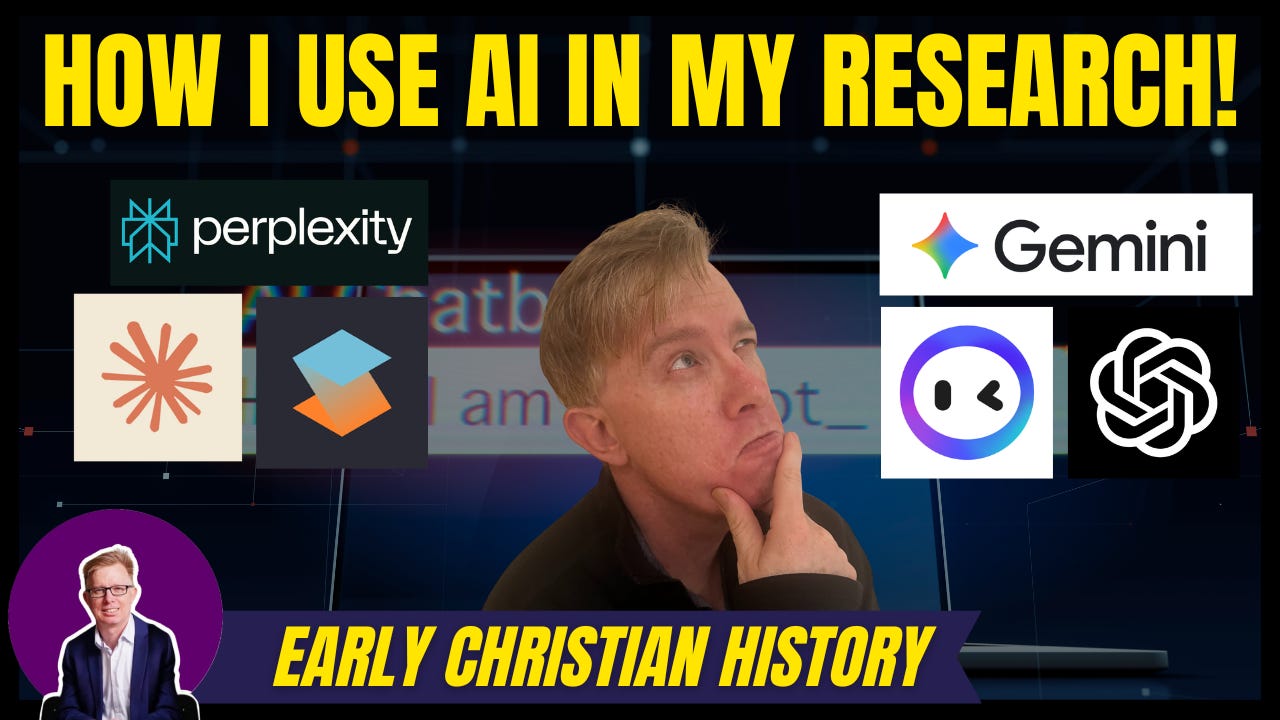How I Use AI in my Research and Content Creation - Part Three
My Deep Divine into AI Tools for Academics and Researchers
Which is the Best AI for Academics Like Me?
I’m an academic in the humanities, not a tech influencer. I don’t know the difference between an “Algorithm” and “Al Gore with Rhythm.”
I am a lecturer, researcher, supervisor, administrator, and content creator.
I do not want AI to do my work for me, such as writing, exegesis of biblical texts, grading papers, and reflecting on theological topics.
But I do want AI to help me be more productive, more efficient, give me a starting point on a project, or do some of the mundane tasks to complete a project.
So here is what I have learned!
ChatGPT and Gemini are good for basic AI tasks related to translation, summarizing documents, image generation, and search tasks. Great for brainstorming ideas too! The free versions are good enough!
If you want value for money, then I suggest SciSpace, which, for $12 a month, gives you a great suite of tools specifically created for academic tasks. I’d advise PhD students to use it.
However, if you want to take it to the next level, and really see what AI can do for your productivity, then it comes down to a subscription to either Claude or Perplexity.
So which one did I go for?
I was literally just about to sign up for a Claude subscription, but I suddenly had a change of heart and switched to Perplexity. Here is why:
Claude is leaning hard into AI for coding. While it is good at document analysis, research, and writing, I think Claude is developing more into a niche product for coders.
Claude has limited modalities in that it doesn’t do image generation or image analysis.
Anthropic - the owners of Claude - got sued for 1.5B for using pirated books to develop their LLM. So some big ethical questions here.
I still like Claude. If I could get the free educator’s version of Perplexity, I might take out a paid subscription with Claude.
However, for the win, it is Perplexity.
Why Perplexity?
Well, with a Perplexity subscription, I can use Claude’s sonnet and opus as my preferred models for research. It is not exactly the same due to the fine-tuning of the LLM in Perplexity, but it is close enough.
Perplexity has some good functionalities that I like: It searches the Live Internet, so it’s real-time research. Its Discover section is great for news. The web browser Comet may one day replace Chrome. The “Deep Research” function is very good as it has provided me with great advice on my YouTube metrics and editing my own documents. You can tinker with stuff in “Spaces” and then turn it into publishable “Pages.” The “Labs” are a great place to develop documents, sidebars, and apps. Even I’m becoming an app developer. Also, the Perplexity app is like a better version of Siri. It is a real research assistant, not just a search engine.
Perplexity also sponsored the Laver Cup, so they obviously like tennis, which I like too!
So Perplexity got my subscription for $20 (USD) per month or $300 AUD per year.
Let me know what you learned the most from this investigation. What AI platforms do you like and recommend? What did I miss?




